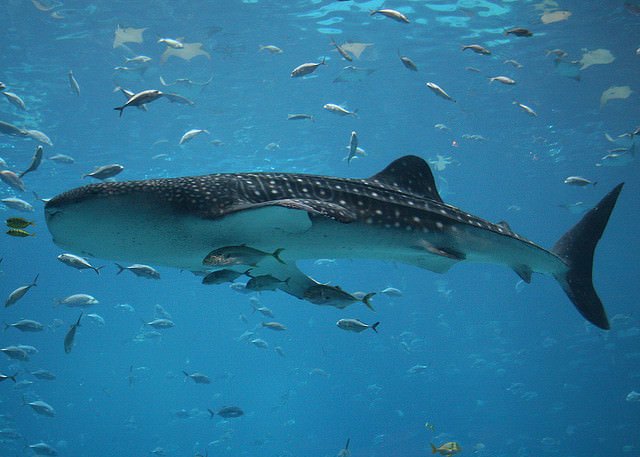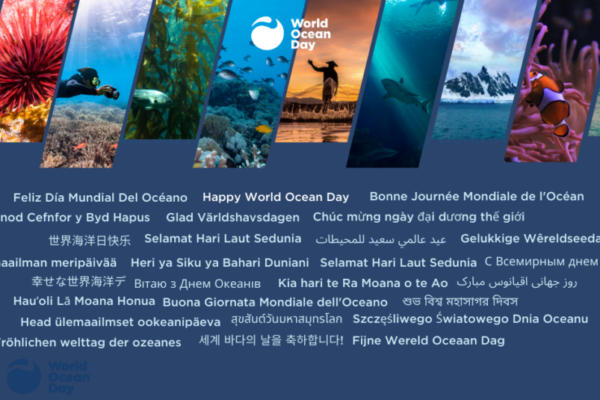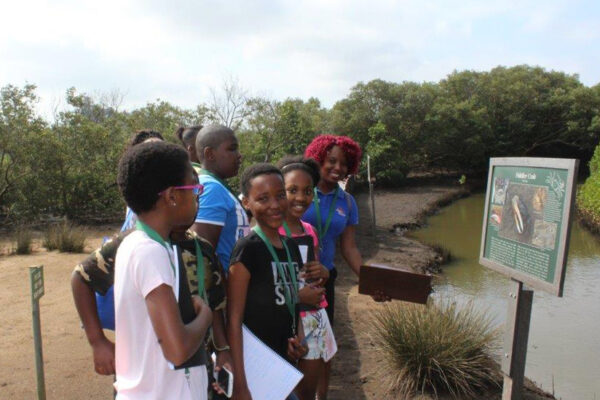We're well into Shark Week 2014, and there's a huge need to represent TRUE shark facts on social media and our outreach. Last year, there were almost 3 million tweets about sharks during this event! You can see Upwell’s great coverage of how things went in 2013.
All of this attention means it’s a great time to talk to people about sharks – and especially to demonstrate that sharks are more complex than the bloodthirsty monsters that get people in a frenzy. Let's take Shark Week to the next level, and turn it into a time to educate about and advocate for sharks.
There’s nowhere better to talk with people about sharks than at an aquarium, a rare opportunity to get up close and personal with a shark… without the fear. Here are what some of our partners are already doing for sharks.
Aquariums bringing sharks and people together
Would you hug a shark? Nicky, senior aquarist at The Aquarium of the Pacific would! That’s because she and Fern the shark have developed a special relationship full of trust. Fern allows herself to be put into a state of paralysis called “tonic immobility.” This puts Fern in a vulnerable position, so it took a lot of training and relationship-building to reach this point. As husbandry volunteer Hugh writes: “In reality, our relationship with sharks is what we make of it.”
Montery Bay Aquarium positions the “fearsome” great white sharks as ocean ambassadors along with other sharks and rays. Their Project White Shark helps guests look past the Great White’s scary reputation. Their research includes collecting juvenile great whites and studying them before safely releasing them back to the wild. Knowing more about these sharks can help us do an even better job of protecting them.
Whale sharks are some of the most intriguing fish in the ocean – huge and intimidating, yet gentle and docile. Despite their charm, there’s still much we don’t know about whale sharks. Georgia Aquarium, which houses several whale sharks, also studies them in the wild to discover new information - such as how the sharks find food in the open ocean. Their research has even contributed to the creation of a whale shark reserve. The Wildlife Conservation Society studies the movement of whale sharks and their relationship to the tourism industry. Both organizations understand that the more we know more about these spotted giants, the better we can protect them.
The National Aquarium also works with sharks in the wild – and they’re inviting you to help out! Anyone age 10 and up can help the aquarium tag sharks on their annual trip. It’s a great opportunity to experience sharks in the wild, and help scientists gather vital information to protect them.
Join in the sharky fun
You can celebrate shark conversation at your own organization. Why not follow one of these partners' example and throw an event for Shark Week?
For next year - how about staging fun events such as a Shark Week scavenger hunt (Texas State Aquarium), or having shark themed apparel for people to wear (The Florida Aquarium)? You can even let visitors interact directly with shark items such as shark egg cases (Cabrillo Marine Aquarium). It's great for young children to have positive associations with sharks and to be able to physically interact with the world around them.
There are many conservation activities you can plan as well. Having speakers talk about sharks and shark conservation is a great idea. Invite anyone from a wildlife artist to a SCUBA team engage your audience about sharks (Oregon Coast Aquarium). You can even stage a sleepover where guests can learn about sharks in a less crowded setting (Newport Aquarium).
Are you doing anything to help out sharks? Tell us in the comments!
Cover Photo by flickr user Albert Kok





